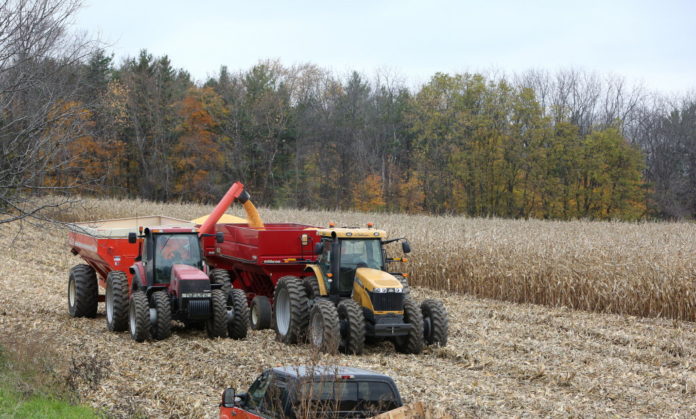Farm groups and manufacturers in the state are hailing Senate passage of the USMCA as a major victory.
The United States Mexico Canada Agreement passed the U.S. Senate this week with support from both of Wisconsin’s senators. U.S. Sens. Ron Johnson and Tammy Baldwin voted in favor of the USMCA, which cleared the Senate on a bipartisan basis, 89-10.
The agreement was signed by all three countries in 2018, but the legislative bodies of each needed to ratify the deal. The USMCA ratification bill passed the U.S. House of Representatives last month, and Senate approval clears the way for President Trump to sign it into law.
Mexico and Canada account for more than 40 percent of all U.S. dairy exports and are top export destinations for agricultural products coming out of Wisconsin.
A release from USDA notes all food and agricultural products that had no tariffs under the North American Free Trade Agreement will remain tariff-free under the USMCA.
“Free-flowing trade with neighboring nations will provide a measure of security for dairy farmers and their processor partners that is sorely needed,” said John Umhoefer, executive director of the Wisconsin Cheese Makers Association.
Joe Bragger, president of the Wisconsin Farm Bureau Federation, adds the agreement will provide new market access for dairy and poultry products.
“Specifically, our state’s dairy farmers should welcome U.S. dairy products access to an additional 3.6 percent of Canada’s dairy market,” he said.
In a statement, Wisconsin Manufacturers and Commerce President and CEO Kurt Bauer notes that one in four manufacturing firms in the state export goods to Canada and Mexico, and more than 44,000 workers in the state have jobs that rely on trade with these two countries.
“USMCA will not only keep us from losing ground in these critically important markets but will also bring opportunities to increase market share,” said Edge Dairy Farmer Cooperative President Brody Stapel. “Other agricultural commodities will see significant gains as well.”
In separate statements, Baldwin focused on labor standards and benefits for workers while Johnson highlighted economic growth, though both agreed the deal would open up new markets in Canada and Mexico.
“Wisconsinites rely on trade agreements that will benefit businesses, ensure collaboration between our trading partners, and promote stable economic growth,” Johnson said. “The final version of the USMCA will help Wisconsin farmers and manufacturers continue to sell their goods throughout North America.”
Baldwin agreed the USMCA will help Wisconsin farmers and manufacturers but remarked that President Trump needs better trade deals, not trade wars. She added that the trade wars have hurt Wisconsin’s economy and more than 1,900 dairy farms in the state have gone out of business.
The USMCA legislation includes many changes that Baldwin pushed for, including enforceable labor standards. She saw confronting Canada’s trade barriers and Mexico’s limits on Wisconsin cheese exports to increase market access as a win for dairy farmers and cheesemakers.
“The USMCA is a better deal for farmers, manufacturers, businesses and workers,” said Baldwin in her statement. “In order to stop the outsourcing of manufacturing jobs we not only need fair trade deals, our workers need tax reform that rewards their hard work and doesn’t encourage corporations to send their jobs to other countries.”
— By Stephanie Hoff and Alex Moe
WisBusiness.com






